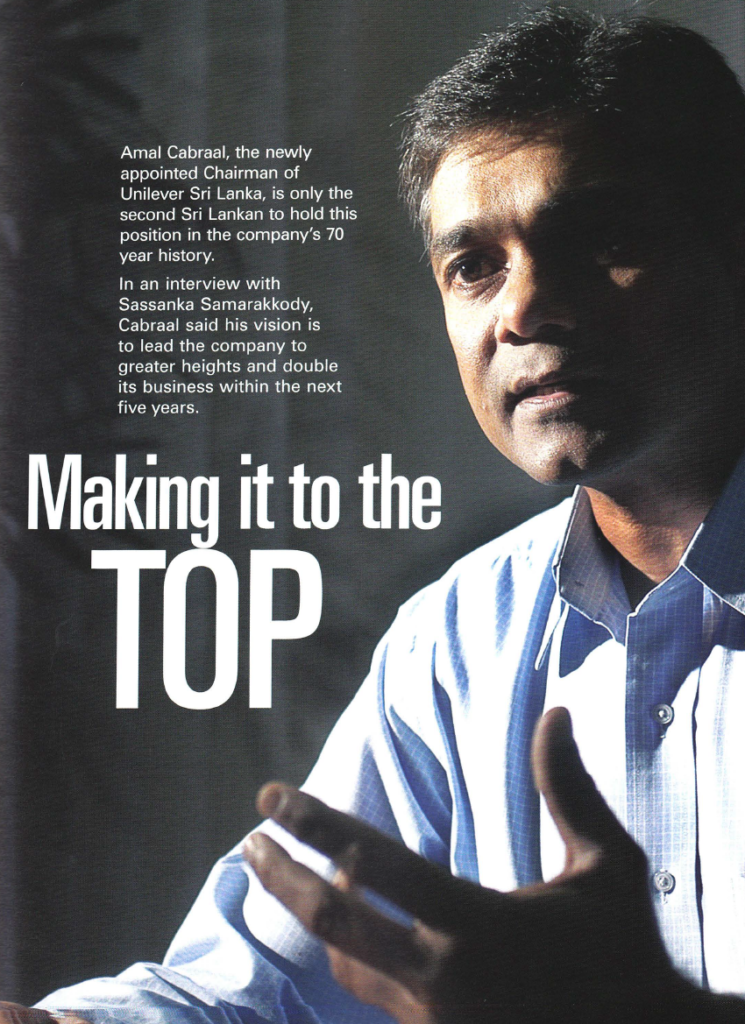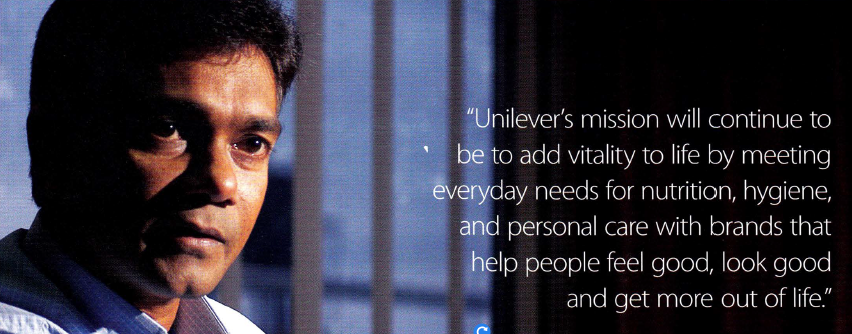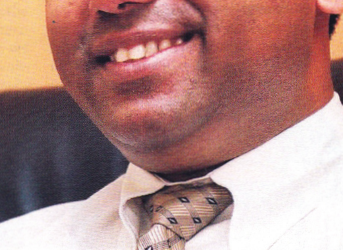
What made you chose marketing as a career? How did it all begin?
Even as a youth, I was interested in the Marketing profession. Though somewhat an uncharted territory back then, I thought it would be interesting and challenging. I was sure I wanted a career in a field that was not routine and had variety. The advertising aspect of the job also attracted me. Besides, I wanted to join the private sector, although my father, who was a neuro-surgeon (the first in Sri Lanka), wanted at least one of his five children to take up medicine; none of us did.
At that time, Marketing was not as sought after a career as it is today. As a matter of fact, not many actually knew what it was all about and Marketing was generally thought of as Selling. Eardley Perera, the father of marketing education in Sri Lanka, was one of the people I was fortunate enough to meet and associate with closely. He opened my eyes to the potential of this field.
I obtained the Diploma in Marketing from the Chartered Institute of Marketing (CIM), UK, and that opened the door to Unilever, which I joined as a Management Trainee in 1982. At that time, Unilever was one of a handful of companies that was practising Marketing in the real sense of the discipline. Whilst working, I got my MBA from the University of Colombo.
The first two brands I handled at Unilever were Sunlight and Lifebuoy, two of the leading brands of the company, which remain so even today. I then moved on to manage Astra and Flora margarines. In 1989 I was sent to the UK to work at Brooke Bond Foods, which Unilever had recently bought. After about two and-a-half years I returned to Sri Lanka. By then, Unilever, which had earlier acquired Lipton, was in the process of merging with Brooke Bond and was marketing several well-known tea brands. I managed that transition as my next assignment. I was next appointed as Marketing Manager and assigned the Personal Care brand portfolio that included Signal toothpaste, Sunsilk shampoo, Pears, Pond’s, etc.
About 18 months later, the then Chairman, Hans Woelfer, asked me whether I would you like to handle Sales. At that point, apart from my early management trainee days, I had not done much in Sales. Though apprehensive about my lack of know how, I thought that experience in Sales at this juncture would add to my career prospects. By then I had worked on several brands and had also got expatriate experience, and I believed that if I could gain some sales experience too, it would help me.
The company sent me to India, where I worked as an Area Sales Manager for about a year. When I came back, I was appointed as Head of Sales at Unilever. Up to this time most of those who were appointed to this position had come from within the department working their way up the ranks. My predecessor in this position was a veteran with 35 years experience. In the eyes of most, I was too young for the job. As a matter of fact, their years of service were close to my age! The challenge was, in their eyes, how a relatively inexperienced young manager was going to manage a team who was much more senior in age and experience.
How did you face the challenge of handling this new area for you, Sales, and how did your career progress from there?
My initial challenge was, how do I add value to this group of people, and get them to see that “this guy has got something here,” and thereby, develop mutual trust and respect?
I set about this by introducing a series of new strategic initiatives. For example, for years, our salesmen were using bill books and selling off the back of trucks. With our portfolio already large and set to expand further, we knew we needed to be more efficient and be techno savvy. Therefore, in 1995, we began computerising our Distributors and then introduced palm-tops to the sales force. We are one of the few companies where the salesmen go from shop to shop, using a palm top for processing orders.
Following this initiative our salesmen, who previously visited 20 shops, could now cover 40 outlets. Today we have probably one of the most efficient sales and distribution operations, not only in Sri Lanka but also streets ahead of our South Asian neighbours.
The powers that be thought that I had done a good job and in 1998 I was expatriated again as Marketing and Sales Director to Unilever Bangladesh. This was my first Board appointment and a milestone in my career. The first year in Bangladesh was a very difficult one, we lost market shares in some categories and the company made a loss. But we turned this business around and since 1999 to date, the Bangladesh operation is delivering double-digit growth every year. I am proud to have been a member of the team that turned around this company.
I came back to Sri Lanka in May 2001 and was made the Brands Director, which post I held until I was appointed Chairman this month. For a long period of time Unilever Sri Lanka had been achieving steady but unspectacular growth in the region of 6% to 8% per annum. It was a profitable and solid business with dominant market shares. Towards the latter part of 2001, we decided to accelerate growth and set ourselves a vision to double the business within five years. We achieved this within four years and a month.
What strategies did you follow to achieve this goal?
The strategies we adopted revolved broadly around our brands, our people and their link with the community. We started by focusing on the transforming the culture of the company and the mindsets, attitudes and behaviours of people. For instance, someone who was used to driving at an average speed of 30 mph was suddenly required to increase peed to 60 mph. To do this, one needs to change one’s mindset and acquire new skills and competencies. Looking back, I think the success we achieved in this transformation was absolutely key.
We also had to keep the vision of doubling the business alive, as what generally happens with most vision statements is that it becomes wallpaper. After a period of time, people tend to pay lip service to it and ultimately forget it. One of our main tasks therefore was to get shared ownership of the vision, make the team believe in it and motivate them to work towards achieving the goals, within the specified time frame. We knew where we wanted to go but didn’t have all the answers on how to achieve our goal, but everybody bought into the vision, the team worked together and contributed towards making the vision a reality.
We also had to keep the vision of doubling the business alive, as what generally happens with most vision statements is that it becomes wallpaper. After a period of time, people tend to pay lip service to it and ultimately forget it. One of our main tasks therefore was to get shared ownership of the vision, make the team believe in it and motivate them to work towards achieving the goals, within the specified time frame. We knew where we wanted to go but didn’t have all the answers on how to achieve our goal, but everybody bought into the vision, the team worked together and contributed towards making the vision a reality.
What about the Marketing aspect?What changes did you make in order to reach the projected growth level?
We explored many avenues of growth across all functions but specifically from a Marketing perspective, we addressed the two key constituents – our customers and our consumers. For example, we looked for opportunities with customers, the gaps in the existing sales channels, and how to create new channels. We asked ourselves, are we actually selling to our potential? We in fact focused on the entire selling arena and devised ways and means to improve our service levels and thereby sales volumes. For instance, shampoos were not traditionally sold in beauty salons, therefore why not do so? Here was a perfect opportunity to reach potential customers. We seized many such opportunities to drive our sales forward.
As for consumers, we were aware that they were changing rapidly. We identified the need gaps and addressed them through a whole series of innovations across our entire portfolio of brands, improving existing brands and introducing new ones. At the same time, the whole supermarket trade was growing fast and the opportunity for upper end products was increasing. We catered to this by entering new categories like Fabric Softeners and Shower Gels, etc. Another area of focus was to drive greater effectiveness in brand advertising. Could we become more innovative than confining our advertising to conventional media such as television, radio and the press, where everybody advertises, resulting in clutter? We wanted the shopper and consumer to experience our products directly. Therefore we did a lot of innovative brand activation.
For instance, to promote Surf Excel, our top of the range washing powder, we came up with the concept ‘dirt is good.’ In other words, rather than restricting kids, allow them to play and get dirty, and thereby, learn and develop – leaving the dirt and stains to Surf Excel. Now, to convey this message to consumers, we thought the more effective way was to provide them with first-hand experience, so we organised “Surf Exsellum” across the country. This was a family day out where kids as well as parents enjoy and experience ‘play and learn,’ leaving the hard task of getting rid of the dirt to Surf Excel.
There is a school of thought that like some other multi-national companies, Unilever is pulling out of manufacturing in this country. Could you comment?
There is no truth to this perception. Almost 95% of the products we market in Sri Lanka are made in this country. We only import a few topend products amounting to less than 5% of sales. That too is due to economies of scale. Unilever is a branded product marketer, and therefore, manufacturing is only a means to this end. The principle we work on is to always strive to give the consumer the best value. From this point of view, following the implementation of a series of cost efficiency measures, manufacturing in Sri Lanka today is still a viable option as we are able to give the consumer greater value than via imports. As for the future, as long as economic and labour policies along with costs permit us to give consumers the best value, we will continue to manufacture in this country. Unilever has been in operation in Sri Lanka for nearly 70 years and we have been manufacturing products for over 60 years. We have every intention to continue to do so into the future.
From an economic standpoint what are the key challenges your company faces today?
In a nutshell, the biggest economic challenge not just for Unilever but for most manufacturing and marketing companies, revolves around the instability in macro economic policies, increasing costs, rising inflation and a higher direct and indirect taxation. Sri Lanka’s tax regime is probably amongst the highest in this part of the world.
For example, one of the key raw materials used in the manufacture of soap is palm oil. Recently, in addition to the existing high import duty and a cess of Rs3,000 per ton, an additional cess of Rs3,000 per ton was imposed. Besides increasing the cost of production, such enhancements in tax will before too long make the importing of finished soap a better option for the consumer.
Despite the best efforts we make at improving our production efficiencies, some of these increased costs will inevitably get passed on to the consumer. There is, however, a limit to this as there will soon come a time when consumers cannot afford it and will curtail their purchases, adversely impacting growth. From the perspective of the country’s economy, our company may be a small player, but ultimately it’s the aggregate of every business like ours that contributes toward GDP growth.
Take the example of last year’s regulation that disallowed 50% of advertising as a legitimate business expense, requiring this amount be added back to profit and subsequently taxed. The recent levy on foreign commercials, requiring an advertiser to pay RsS00,000 per TV commercial per channel is yet another tax imposed on the industry. For instance, if we wish to advertise on three television stations, our cost would be Rs l.5 million even before the brand is advertised. Some of our brands are global and we have to use commercials produced overseas. If the relief the industry is seeking is not forthcoming, we have no option but to curtail overall TV advertising. The smaller channels in particular will suffer the consequences. Spare a thought too for small businesses like those who import certain products and who are given promotional material by the foreign principal to advertise on local TV channels. These companies will find it extremely difficult to afford to air these commercials. What future will these businesses have? All these taxes will ultimately lead to retarding growth, not just our business but for the entire industry.
I have nothing against tax per se, it is required to fund infrastructure etc., but taxes should be reasonable, not retard growth and must be equitable offering a level playing field to all.
According to the Government, these TV levies were imposed to safeguard the local industry and allow them to grow. What are your views?
I believe that rather than evading competition, we must face it and overcome it. Take the case of sports, where you benchmark yourself against the best team. It is by facing the stiffest competition that our standards will improve. The same applies in business; you have to compete and win. History tells you protectionism does not succeed. The market should be open to competition, but of course with sensible safeguards.
I am told that over 80% of TV commercials aired are produced in Sri Lanka. The majority of the TV commercials we air too are made in this country. So there is enough opportunity for the local advertising industry to thrive competing side by side with foreign made commercials, without the necessity for further protection by imposing penal taxes.
There are many other ways of helping the local TV production industry than the proposed taxes. For example, reducing import duty on production equipment such as cameras, editing machines etc., can be considered. Equally, special training academies with private sector partnership could be set up. The avenues to improve the local industry can be many if only we put our collective minds to it.
As Unilever Sri Lanka’s new Chairman, what is your vision for the company?
Sustaining the growth momentum thus far achieved is the key challenge. Our vision is to once again to double this business within the next five years. However, it’s not just top line growth alone that we seek. Our growth, needless to say, must be profitable growth. At the same, time the growth must be competitive too. What I mean by this is that we need to grow ahead of the market or in other words, increase our market shares. As we embark on realising this vision, we will ensure that all our operations are geared to ensure our consumers continue to get the best value for their money. Unilever’s mission will continue to be to add vitality to life by meeting everyday needs for nutrition, hygiene, and personal care with brands that help people feel good, look good and get more out of life.





